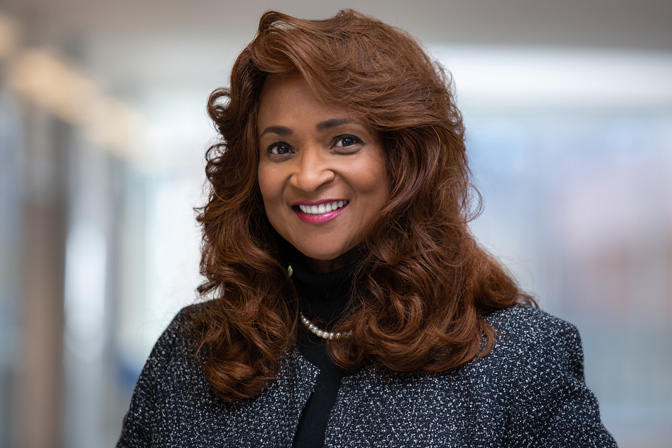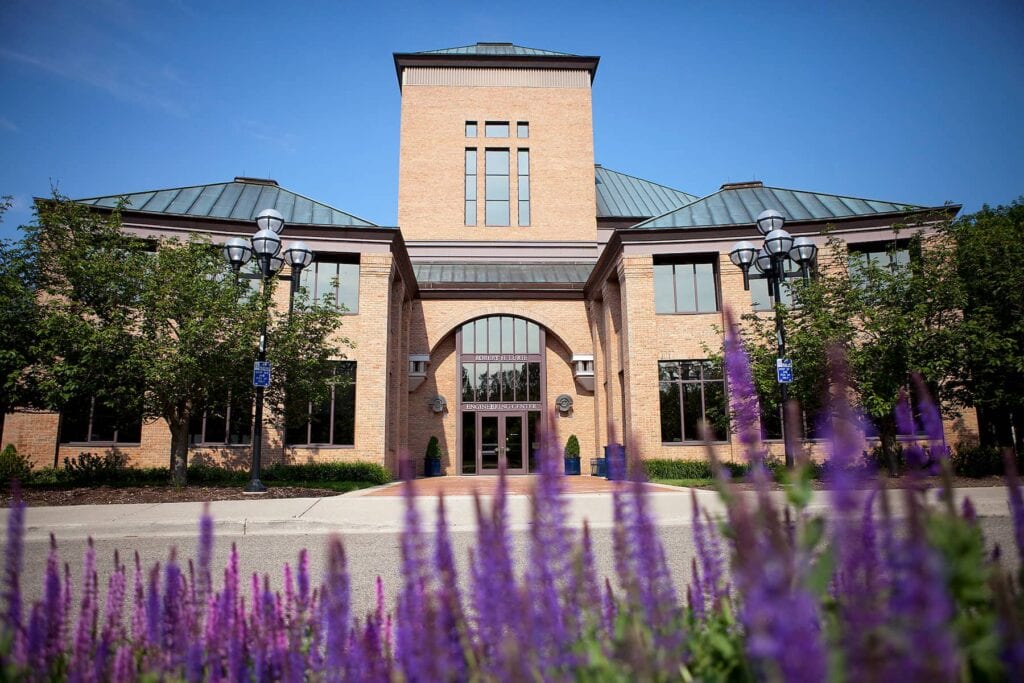
Office of Culture, Community & Equity offers resources and services to enable DEI gains
The new office within Michigan Engineering will support faculty, staff and students in advancing people-first engineering.

The new office within Michigan Engineering will support faculty, staff and students in advancing people-first engineering.
Michigan Engineering has launched a new Office of Culture, Community & Equity (OCCE) that will lead the College’s Culture pillar and serve as a hub for diversity, equity and inclusion (DEI) efforts at the College. The office is taking a unique approach by working horizontally across the College, collaborating with units and making connections to ensure that work is not siloed.
Led by Kimberly Burton, hired in 2021 as the College’s first Executive Director for Culture, Community and Equity, OCCE will promote the College’s strategic mission, vision and values while fostering a diverse, inclusive and equitable culture. The office will tackle areas such as research funding, climate measurement and increasing coordination in DEI programming. The K-20 programming activities of the Center for Engineering Diversity and Outreach (CEDO) will now operate within OCCE.

“As is often the case in universities, there is a tremendous amount of activity at Michigan Engineering promoting our culture and values, including diversity, equity and social impact—but those efforts can be siloed rather than coordinated,” said Burton. “Part of OCCE’s role is to identify the existing pockets of activity and coordinate those efforts to enable progress throughout the College.”
One of these “pockets” is the world of grant applications. Funding bodies are aiming to address historic inequities by asking grant seekers to explain how their proposed project will incorporate principles of diversity, equity and inclusion. Faculty at Michigan Engineering are striving to meet these objectives and take a people-first approach in their work, and OCCE provides valuable support to help articulate this successfully in grant proposals.
OCCE staff have been preparing for launch since December 2021 and have already consulted on or participated in proposals for $522 million in potential funding over 10 years. One of these proposals was recently awarded, securing $10.95 million for a Department of Energy-funded research center that could help enable the development of advanced batteries and fuel cells for electric vehicles.
“OCCE was instrumental in shaping our center’s focus on DEI and workforce development,” said Jeff Sakamoto, professor of mechanical engineering and director of this new research center. “They helped us from the grassroots level all the way to the final proposal, providing us with reference material to read and incorporate ideas from. Moreover, they helped us establish rubrics to evaluate the efficacy of our DEI and workforce development activities to create quantitative and qualitative feedback, ensuring that DEI is well-integrated into the overarching center goals.”

OCCE will also serve the Michigan Engineering community by measuring the effectiveness of current culture initiatives being conducted across the College, to identify critical gaps and inform decisions about where to focus effort.
“We can’t improve what we can’t measure, and historically, we haven’t successfully measured the impact of our DEI efforts simply because we have lacked the human resources to evaluate and assess these efforts,” said Burton. “OCCE is positioned to provide such measurement and necessary recommendations to ensure our efforts stay focused on our ultimate goals of educating globally minded engineers and designing equity-centered engineering solutions.”
The office is currently developing an overarching structure to track DEI efforts across the College, strengthening communication between units while reducing duplication of resources and programming.
“I am very excited by the approach OCCE is taking in their focus on our culture and community at Michigan Engineering,” said Alec D. Gallimore, the Robert J. Vlasic Dean of Engineering, the Richard F. and Eleanor A. Towner Professor, an Arthur F. Thurnau Professor, and a professor of aerospace engineering. “We have the enthusiasm and the talent in our community to make real progress in advancing engineering that takes a people-first approach, but we’ve been held back by not having a centralized coordinating resource. The strategic leadership and support services that OCCE provides will enable us to make needed connections and maximize the impact of our efforts.”
The establishment of OCCE realizes one of the major initiatives announced after the completion of the five-year DEI Strategic Plan (2016-2021), and comes as Michigan Engineering launches its people-first framework for engineering.